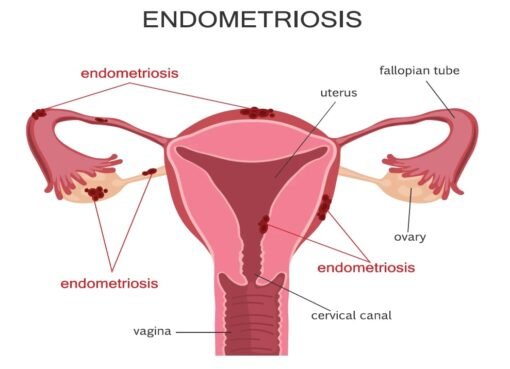How To Become a Post-Master’s Psychiatric-Mental Health NP

The demand for specialized mental health professionals is growing, as the complexities of mental health care become increasingly apparent. For nurses looking to specialize in psychiatric care, becoming a post-master’s psychiatric-mental health nurse practitioner (PMHNP) offers a challenging and rewarding career path. This advanced practice role involves providing comprehensive mental health services, working with patients across the lifespan, and delivering a level of care that encompasses both physical and mental health. In this article, we’ll delve into what it takes to become a post-master’s PMHNP, the educational requirements, certification processes, necessary skills, and potential career advancements in this field. Keep reading to explore this fulfilling career trajectory.
Understanding the Role of a Post-Master’s Psychiatric-Mental Health Nurse Practitioner
Post-master’s psychiatric-mental health nurse practitioners (PMHNPs) are advanced practice registered nurses (APRNs) with a specialization in mental health care. They diagnose and treat individuals with psychiatric disorders, providing holistic care that addresses both mental and physical aspects of health. PMHNPs offer therapies, prescribe medications, and work closely with patients to manage their conditions over time.
They also take on responsibilities such as creating treatment plans, educating patients and their families about mental health, and advocating for mental health care policies. PMHNPs must maintain empathy, patience, and excellent communication skills to effectively support their patients. They work in various settings, including hospitals, private practices, mental health clinics, and community health centers. Understanding the full scope of this role is crucial for those considering this pathway.
Educational Paths: Earning Your Post-Master’s Certificate
Nurses with a Master of Science in Nursing (MSN) who want to specialize further can benefit from a post-master’s psych mental health NP certificate. This program expands their scope of practice in psychiatric-mental health nursing, combining foundational knowledge with advanced topics like psychopharmacology and psychotherapy. Designed to integrate theoretical learning with practical application, these certificates prepare nurses to deliver compassionate, evidence-based care across the lifespan.
Programs often blend online and in-person learning, making them accessible for working professionals. Completion typically takes one to two years, depending on the study pace, with accredited programs ensuring eligibility for board certification. For example, the University of Cincinnati offers a robust post-master’s psych mental health NP certificate program combining virtual coursework with clinical requirements.
Licensure and Certification for Post-Master’s PMHNPs
Post-master’s certificate program graduates must obtain licensure and certification to practice as a Psychiatric-Mental Health Nurse Practitioner (PMHNP). Each state has specific licensing requirements, and it’s crucial to familiarize oneself with the regulations. The American Nurses Credentialing Center (ANCC) offers the Psychiatric-Mental Health Nurse Practitioner board certification (PMHNP-BC), which validates the nurse practitioner’s expertise in the field.
Maintaining certification requires commitment to ongoing education and practice, including completing continuing education units (CEUs) and periodic re-certification. Some PMHNPs may choose to become certified in subspecialties like addiction, geriatrics, or child and adolescent mental health, which can lead to opportunities in specific areas of mental health care.
Essential Experience and Skills for Aspiring Post-Master’s PMHNPs

A PMHNP requires a combination of education, licensure, and soft skills. They need clinical experience in mental health settings, interpersonal skills, communication, empathy, and resilience to provide effective care. Communication is crucial for conveying treatment plans and outcomes to patients and families. Leadership and critical thinking capabilities are essential for autonomous decision-making and collaboration with multidisciplinary teams.
Technical skills, such as familiarity with electronic health records and telehealth platforms, are also crucial for remote care and effective access to digital patient data. As technology becomes more integral to healthcare delivery, PMHNPs must adapt to these changes to provide remote care and effectively access digital patient data.
Career Advancement and Opportunities in Psychiatric-Mental Health Nursing
The psychiatric-mental health nursing (PHN) field offers numerous opportunities for growth and advancement. As professionals gain experience, they can take on more prominent roles within healthcare settings or explore teaching, policy advocacy, or research. The complexity of mental health issues demands leaders who can develop innovative care and training approaches. Many PMHNPs open private practices, offering greater autonomy and the ability to tailor patient care.
For those who prefer the academic arena, teaching at the university level or contributing to psychiatric nursing education programs can impact the future of mental health care. Staying updated on psychiatric care techniques, therapies, and medications is crucial for career development. Advocacy and legislative roles can provide rewarding careers, where expert insights can shape policies that improve mental health care systems at local, state, or national levels.
Overall, the journey to becoming a post-master’s psychiatric-mental health nurse practitioner is a multi-faceted process that requires a strong educational foundation, rigorous certification, and a diverse skill set. With the increasing need for specialized mental healthcare professionals, pursuing this advanced practice role presents a wealth of opportunities for both personal fulfillment and professional advancement in an ever-evolving field.
Read More: https://husbandname.org/



